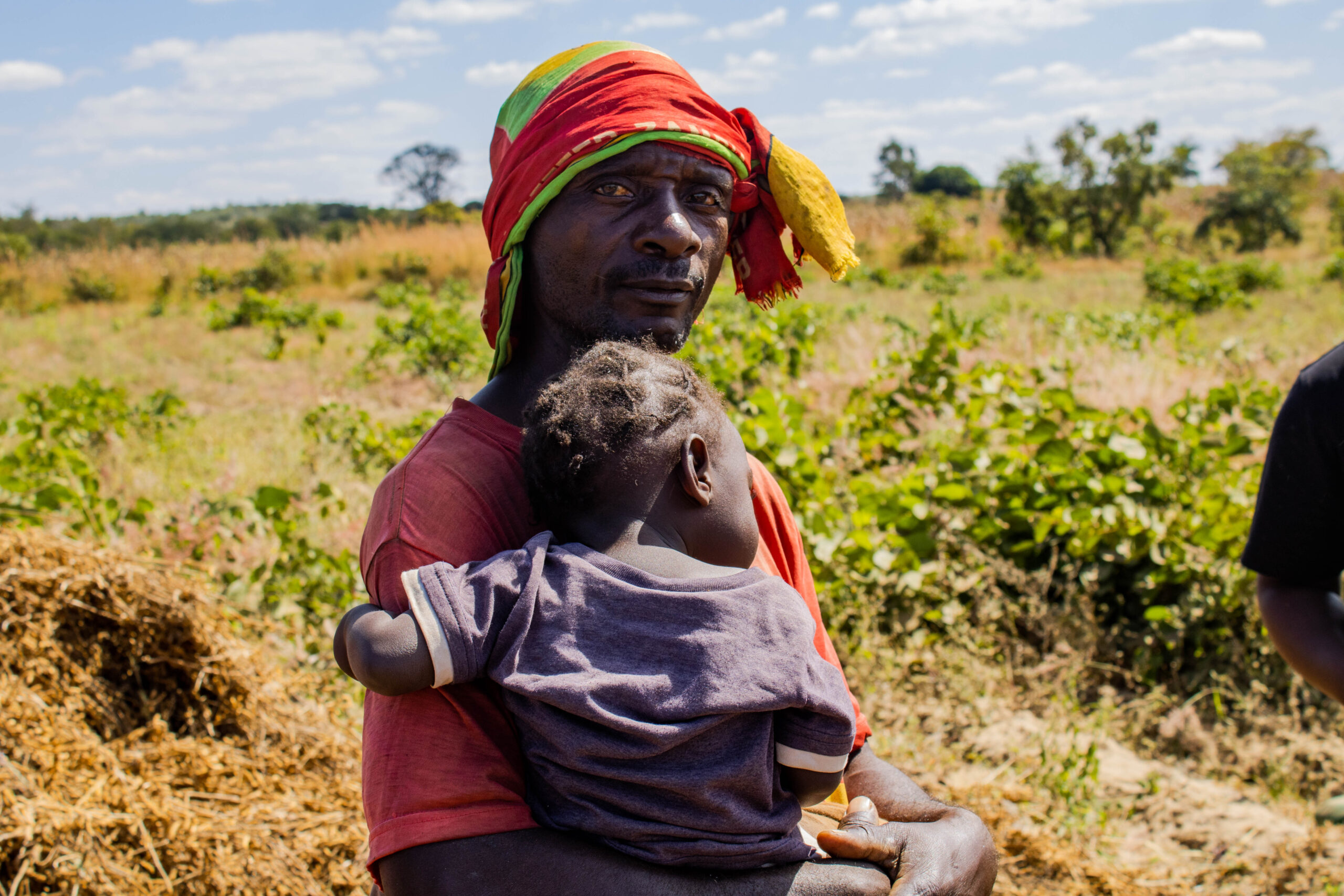Highlights
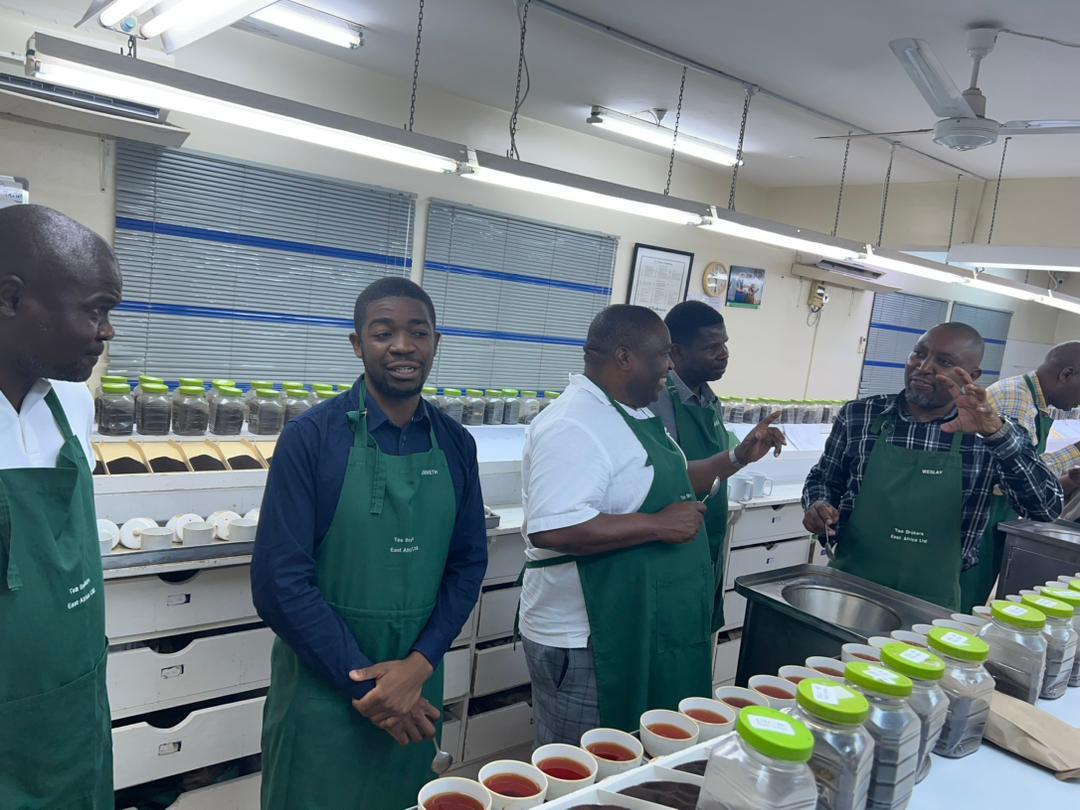
Under Acting Now which is a food security programme centered around an assortment of commodities including but not limited to soybeans, maize, sorghum, and fruits and vegetables, we supported 3,258 producers with knowledge of post-harvest technologies and storage construction, and trained 916 farmers, especially women, on sustainable production. We registered 4,720 farmers, and organized 984 farmers with training on financial literacy and village savings and lending principles.

To promote a competitive, inclusive, and sustainable leather sector in Tanzania and Zimbabwe, 41 small and medium enterprises were trained in leather crafts. Additionally, a virtual design studio was set up.
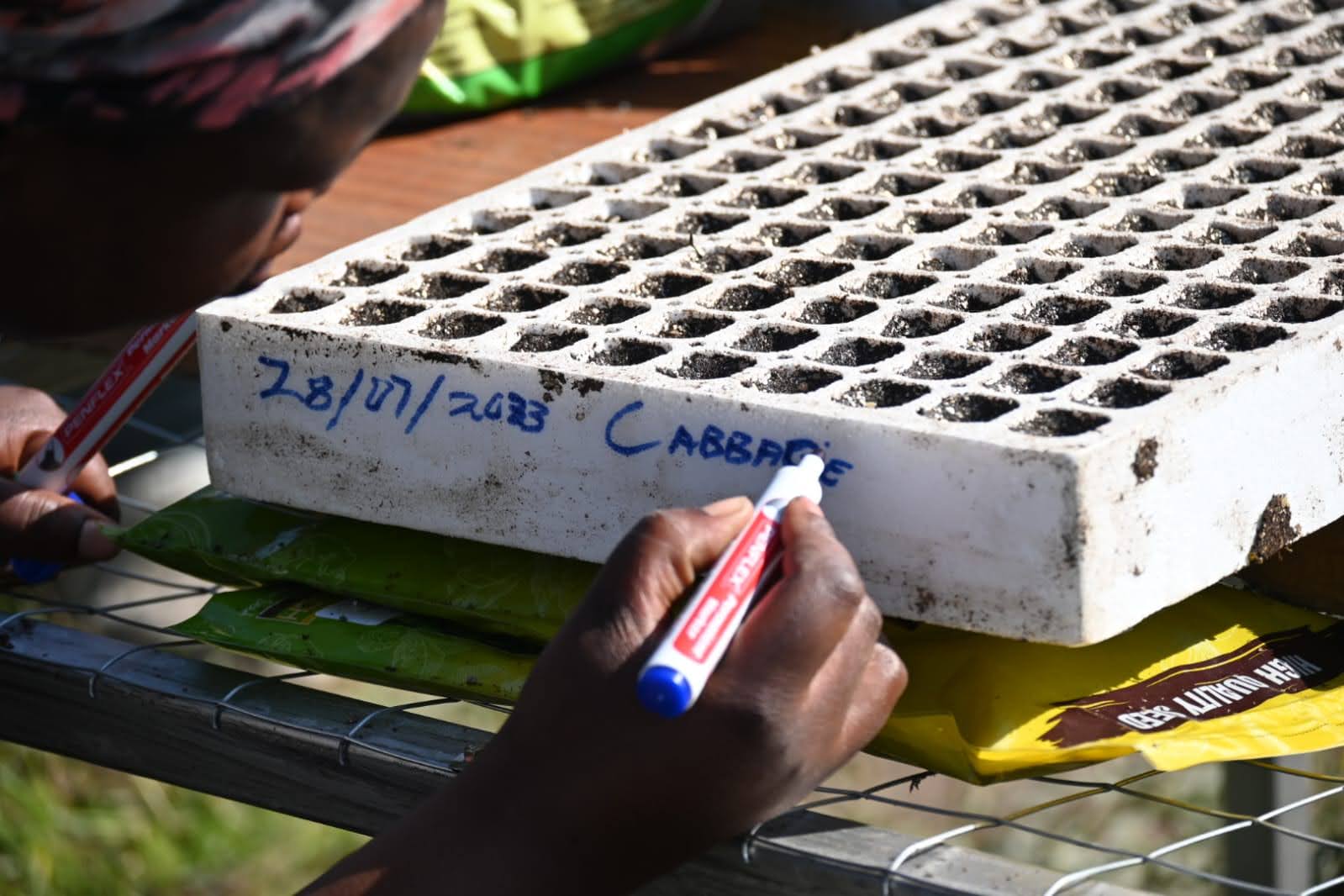
Through a Social Employment Fund, we established one soil lab and engaged 1,352 horticulture smallholder farmers in agriculture services, with the same number benefiting from digital inclusion initiatives. We also managed to involve 2,014 young individuals in agricultural projects
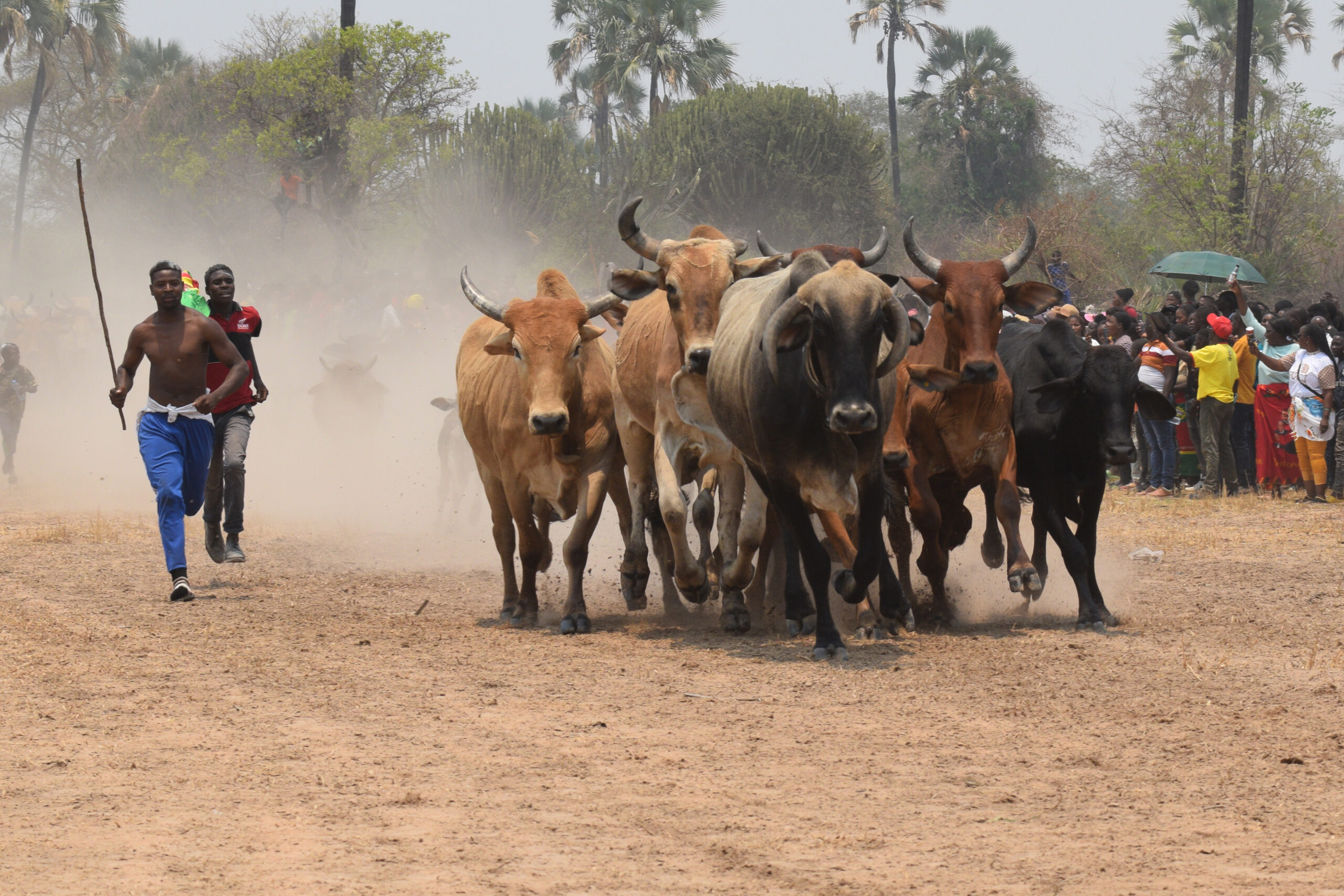
The Inclusive Red Meat Value Chain project capacitated farmers in sustainable production systems across activities such as animal health, silage making, and fodder production in both Zimbabwe and Malawi. In Zimbabwe, 1,109 farmers were trained, while in Malawi, 650 farmers benefited.
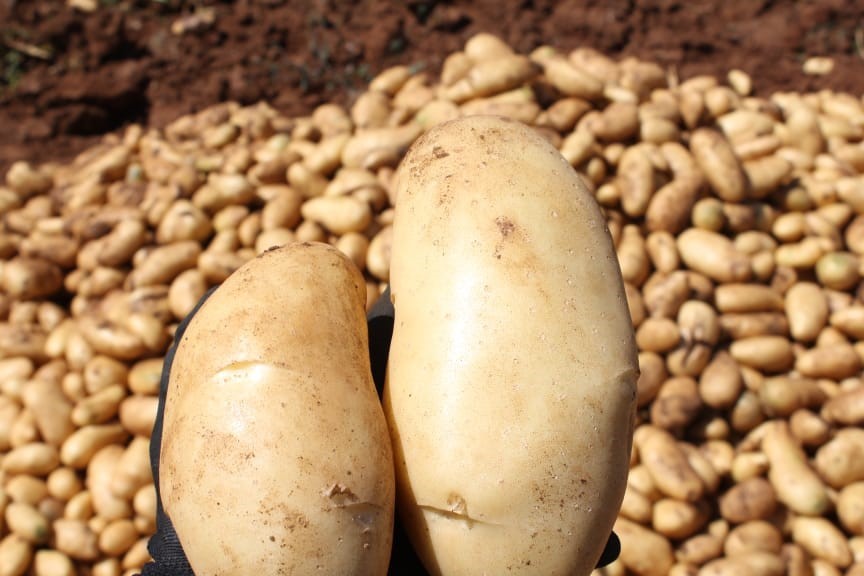
Through a potato production programme in Mozambique, we transferred high-yielding technology to farmers. We were pleased with the initiative’s impact on adopting good agricultural practices, the use of quality fertilizers and certified seeds, and responsible pesticide handling.
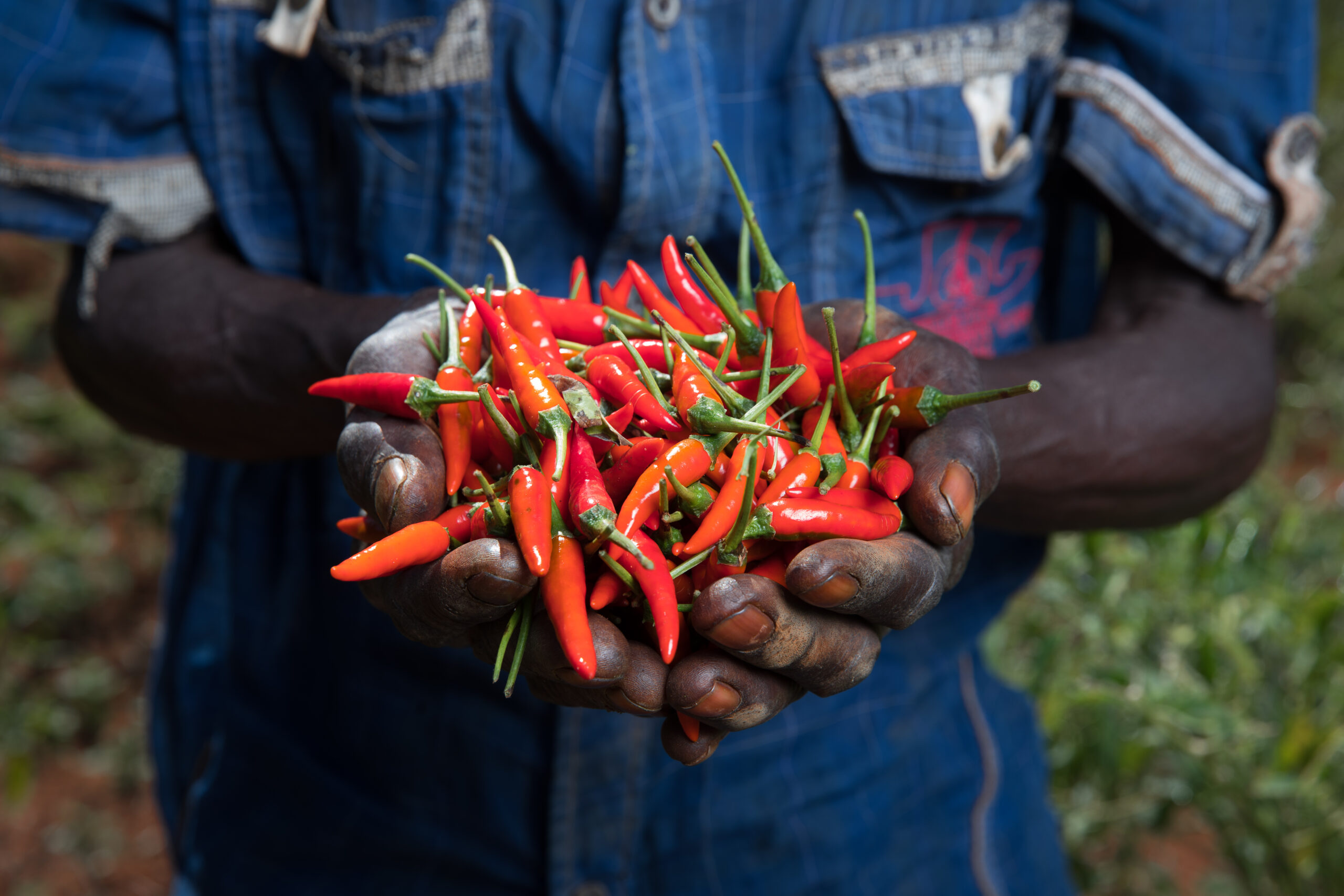
Under the AFR100 agroforestry project in Zambia, a total of 136,772 trees were planted. The project also saw substantial efforts in seedling production across various nurseries. In total, 227,473 seedlings were grown, reflecting a significant investment in reforestation efforts. Reforestation is crucial for combating deforestation, restoring biodiversity, mitigating climate change effects and ensuring sustainable livelihoods for local communities dependent on agri-resources.
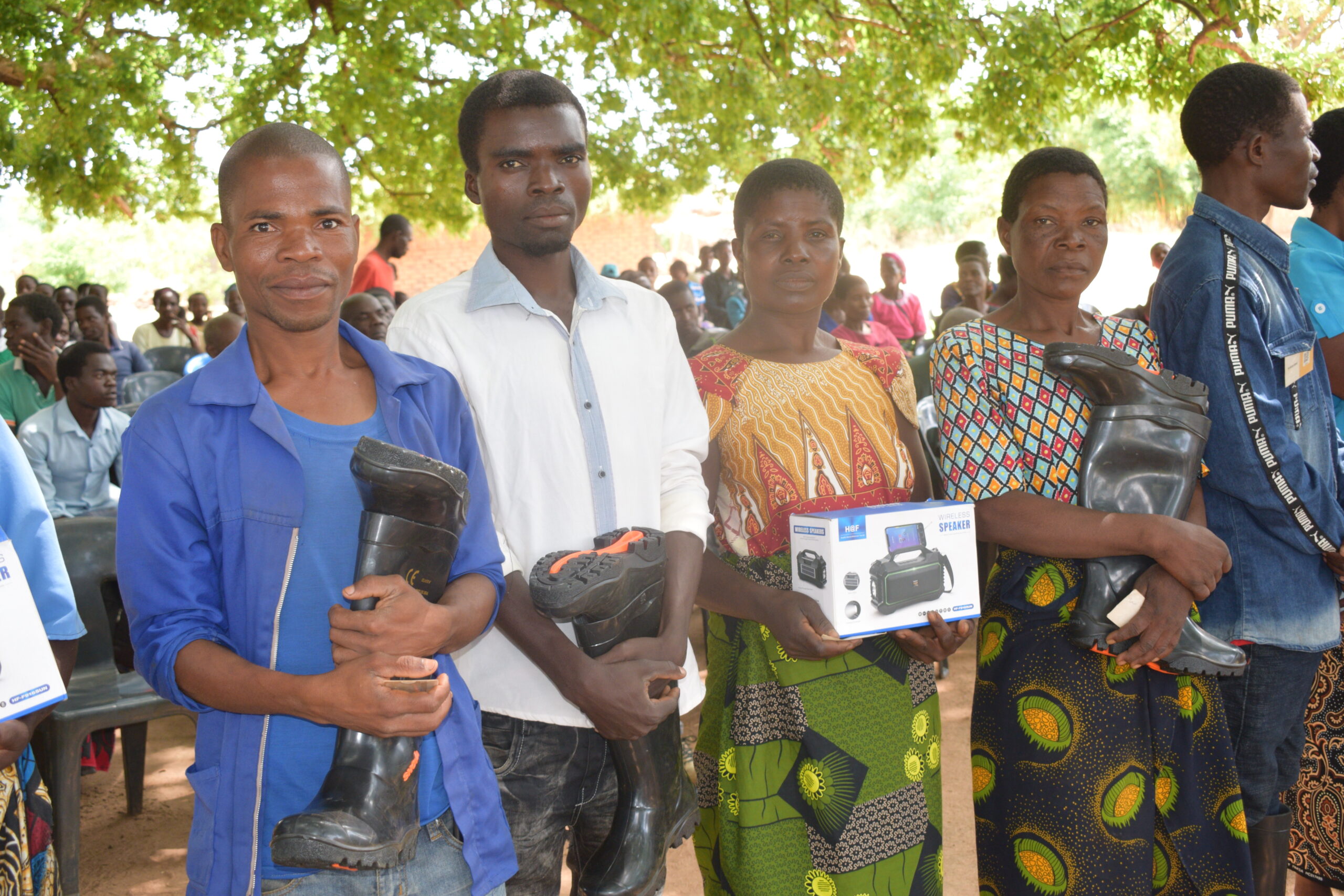
With the establishment of six service hubs in Malawi, Mozambique and Zambia, 15,664 active farmers can now access digital services such as digital recording of farming practices, field mapping, and an incentives scheme (Z’wardy). This helps farmers to improve real-time data and insights to optimize agricultural processes, improve crop yields, and enhance decision-making capabilities.
Results

4,834
farmers with increased income

3,898
farmers trained

2,086
farmers benefit from improved services
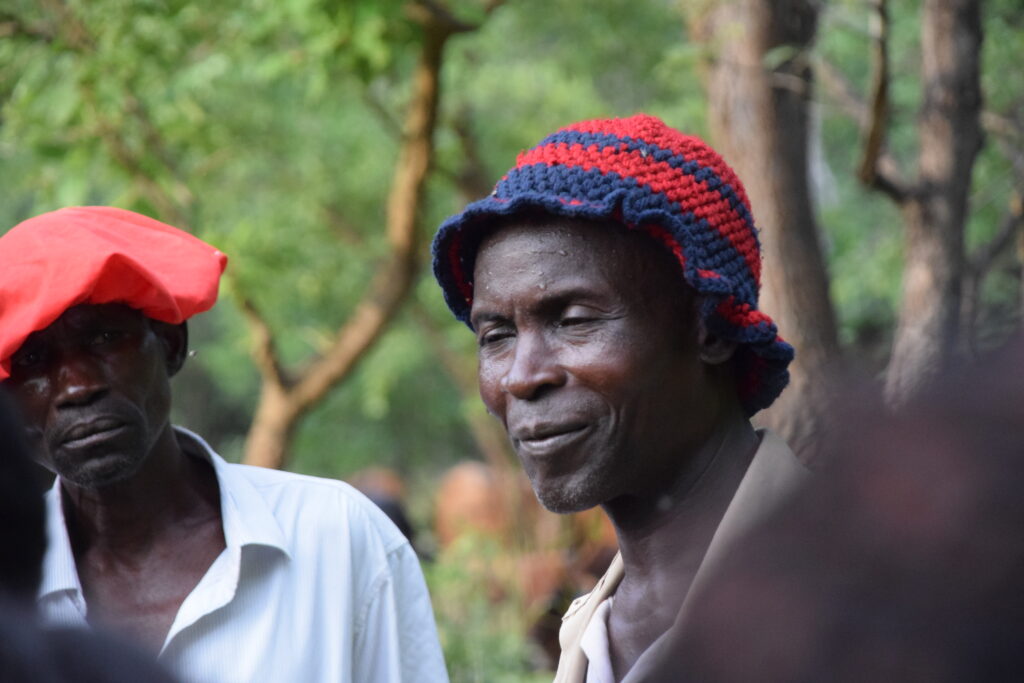
Forging ahead
Our projects have demonstrated the effectiveness of targeted interventions and capacity-building efforts in improving agricultural practices and promoting sustainable livelihoods among farmers and small and medium enterprises in Southern Africa. By addressing specific challenges and leveraging local expertise, these initiatives have contributed to positive outcomes and lasting impacts on agricultural development in the region.
In Southern Africa, several projects were implemented to enhance agricultural practices for farmers and small and medium enterprises. These include, but are not limited to, Pathways to Prosperity, Southern African Development Community (SADC), Support to Industrialization and Productive Sectors, Social Employment Fund, Agência de Desenvolvimento do Vale do Zambeze (Zambezi Valley Agency), Acting Now, Excellence in Agronomy, Hooves for Sustainability, Kfuya (a poultry project), and the Inclusive Red Meat Value Chain project. It is worth noting that our projects have yielded significant results across the region. The Pathways to Prosperity project focused on conducting situation analysis within production systems to identify gaps and tackle challenges faced by farmers. This comprehensive approach led to improved farming practices in countries such as Mozambique, Malawi, South Africa, Zambia, and Zimbabwe.
Under the Inclusive Red Meat Value Chain project and Hooves for Sustainability initiative, notable progress has been made in livestock and rangeland management. Through targeted interventions, farmers have gained access to improved practices, resulting in more efficient management of livestock resources and enhanced sustainability within the red meat value chain. Furthermore, small and medium enterprises have benefited from capacity-building efforts, particularly in the field of leather craftsmanship. Skills development programmes under various projects have equipped small and medium enterprises with the knowledge and expertise needed to produce high-quality leather goods such as shoes and handbags. This not only enhanced the economic prospects of small and medium enterprises but also contributed to the promotion of local craftsmanship and entrepreneurship.
The Social Employment Fund project improves farm management practices among participants. Through training and mentorship programmes, farmers have acquired valuable skills and knowledge in farm management, leading to increased efficiency and productivity in their agricultural operations. This capacity-building aspect of the Social Employment Fund project empowered participants to adopt modern farming techniques and effectively manage their resources for sustainable agricultural growth.
In addition, the Acting Now project focused on enhancing post-harvest management practices, including constructing post-harvest management structures. By improving infrastructure and providing training regarding post-harvest handling techniques, the project helped farmers reduce post-harvest losses and improve the quality of their agricultural produce. This contributes to food security and economic resilience among farming communities. Moreover, efforts to increase soy yields in Malawi and Mozambique were successful and resulted in improved livelihoods for soy farmers in these countries. Through targeted interventions and the adoption of best agricultural practices, farmers increased their soybean yields, resulting in higher incomes and improved food security for their families and communities.
Pathways to Prosperity, Excellence in Agronomy, SADC Support to Industrialization and Productive Sectors, and the Bill & Melinda Gates Foundation projects prioritized the establishment of supportive business ecosystems for farmers in Southern Africa. In 2023, noteworthy progress was made by several key initiatives. The Pathways to Prosperity project conducted thorough situation analysis to identify the specific services required by farmers and areas where service provision was lacking. This comprehensive understanding of farmers’ needs helped inform subsequent interventions to bridge existing gaps in service delivery.
Kvuno, a social-inclusive business that uses digital tools and technology to empower smallholder farmers, was contracted to provide linkages and support service providers to deliver services to farmers through digital connectivity. It proved instrumental in enhancing access to essential agricultural services. The innovative approach facilitated efficient communication and collaboration between farmers and service providers, thereby, improving the overall agricultural ecosystem.
The establishment of seed multiplication initiatives under cotton and soy-related projects were crucial in ensuring the availability of high-quality seeds for farmers. By promoting the multiplication of quality seeds, these initiatives contributed to increased agricultural productivity and resilience among farmers in the region.
Six hubs were set up in Malawi, Mozambique and Zambia to provide essential services to farmers, acting as centralized points for accessing agricultural support services. These hubs played a pivotal role in facilitating delivering services such as training, extension support, access to inputs, and contributing towards improved farming practices and outcomes.
The establishment of Vuno Sekls provided digital connectivity solutions specifically tailored to farmers’ needs. This enabled farmers to access vital information and advisory services through digital platforms, enhancing their capacity to make informed decisions and optimize their farming activities. The setup of demonstration plots for farming services has provided farmers with practical examples of best practices and innovative techniques. These demonstration plots serve as learning centres where farmers can observe and learn about new technologies, crop varieties, and management practices, empowering them to adopt more efficient and sustainable farming methods.
Under the SADC Support to Industrialization and Productive Sectors project which works on locally produced leather, a virtual design studio was established in Zimbabwe. This studio serves as a platform for collaboration and innovation, bringing together stakeholders from across the agricultural value chain to develop and refine solutions to key challenges facing the sector.
Overall, these initiatives have collectively contributed to establishing a supportive business ecosystem for farmers in Southern Africa. By addressing critical gaps in service delivery, promoting digital connectivity, and fostering innovation and collaboration, these projects have enhanced the resilience and productivity of agricultural systems, ultimately improving livelihoods and food security for farmers in the region.
Our tea projects in Southern Africa strategically tackled critical challenges in Mozambique and Malawi’s tea sectors. Focused on fostering sustainability and inclusivity, the project addressed issues like weak governance, gender inequalities, and the absence of specific policies hampering the tea industry. In employing a multi-faceted approach, projects established multi-stakeholder platforms, formalized national tea associations, conducted studies, and facilitated dialogues on gender inclusion. By 2023, notable achievements in Mozambique included farm workers’ mobilization into the Workers Union, collaboration with the Pathways to Prosperity project for climate-resilient practices, and the formation of the Mozambique National Tea Association.
In Malawi, positive strides involved policy changes, commitments supporting smallholder tea production, and advocacy efforts yielding a 31.2 percent wage increase for tea workers. Going forward, the project aims to build upon these successes by implementing policies and monitoring their impact, while sustaining its momentum in stakeholder engagement, disruptive innovations, and continuing policy advocacy for long-term sector improvements.
In a bid to address challenges in the cotton sectors of Mozambique and Zambia, our cotton and textiles projects adopted a comprehensive strategy targeting decent work, gender inequalities, unfair value distribution, and weak governance. We supported two local service providers and empowered 131 producers with knowledge and skills. In Mozambique, our 2023 outcomes included the establishment of the Committee to Rescue the Sustainability of Cotton Producers (CORESPA) to tackle local challenges, the collaboration with Kitovu for enhanced supply chain efficiency, and the initiation of successful seed multiplication pilot projects. Similarly, in Zambia, achievements comprising impactful advocacy for the amendment of the 2005 Cotton Act, strengthened civil society support, and heightened the visibility of the Cotton Association of Zambia and farmer issues through media engagement.
Looking forward to 2025, the project plans to sustain its impact by focusing on multi-stakeholder platform strengthening, expanding digital tool adoption, and ensuring continued empowerment of civil society actors, thereby fostering transparent, inclusive, and sustainable cotton sectors in both countries.
In Mozambique, we actively engaged in capacity building, including advocacy and lobbying skills training for civil society organizations (CSOs) and farmer leaders contributing to the success of the 2023 cotton price negotiations where the government agreed to cushion the local price of cotton against the prevailing global price decline. In Zambia, we continued to actively support consultative meetings, legal reviews and technical submissions, leading to the government prioritizing the final drafting stage of the amended Cotton Act.
Solidaridad’s Africa Foods programme addressed agricultural challenges in both Mozambique and Zambia. It focused on reducing maximum residue limits in fruits and vegetables and improving market linkages. Strategies involved direct dialogues with government structures, capacity-building initiatives, and advocating for Moçambique Boas Praticas Agricolas (MozBopa) standards which promote sustainable agricultural practices, enhance food safety, and improve market access for Mozambican farmers. In 2023, the project achieved significant milestones in both countries, including successful workshops disseminating MozBopa standards and introducing the Farmer to Market tool. This resulted in a farming contract secured by the 25 de Setembro Association in Mozambique and the facilitation of dialogues in Zambia, leading to the approval of a food safety standard better known as the ZAMGAP draft document by the Zambia Bureau of Standards. This is crucial for safeguarding public health, ensuring consumer confidence, and promoting sustainable agricultural practices.
In 2023, the Africa Foods project focusing on soya and fruits and vegetables in Mozambique achieved a significant milestone by conducting a successful workshop on the widespread dissemination of MozBopa sustainability standards to government extension staff, paving the way for their nationwide implementation. This strategic initiative aimed to ensure that high food safety standards were adopted across the country. Simultaneously, a Farmer to Market tool was introduced at a dedicated workshop, extending its benefits to potential buyers, farmers’ associations and governmental bodies in relation to enhancing transparency, improving the bargaining position of farmers, and ultimately fair prices for soya and fruits and vegetables. The practical implementation of these tools led to a transformative outcome for the 25 de Setembro Association in Maputo, as their adherence to food safety practices resulted in securing a valuable farming contract.
This contract enabled them to consistently supply pire-pire to Nando’s, where they could apply the acquired insights from the MozBopa food safety standards, exemplifying the project’s direct impact on sustainable market uptake driven by sustainable agricultural practices.
In Zimbabwe, the small and medium enterprises under the Bulawayo leather cluster in the SADC Support to Industrialization and Productive Sectors project, were able to access an Edgars store for an order of 1,300 pairs of shoes. This has improved their relationship with Edgars since the 2023 order was 30 percent bigger than the 2023 order where they sold 1,000 pairs of shoes. It also attracted attention from other retail stores such as PEP, which by the end of 2023 was engaged in discussions with the Bulawayo leather cluster for a bigger order.
Change that Matters
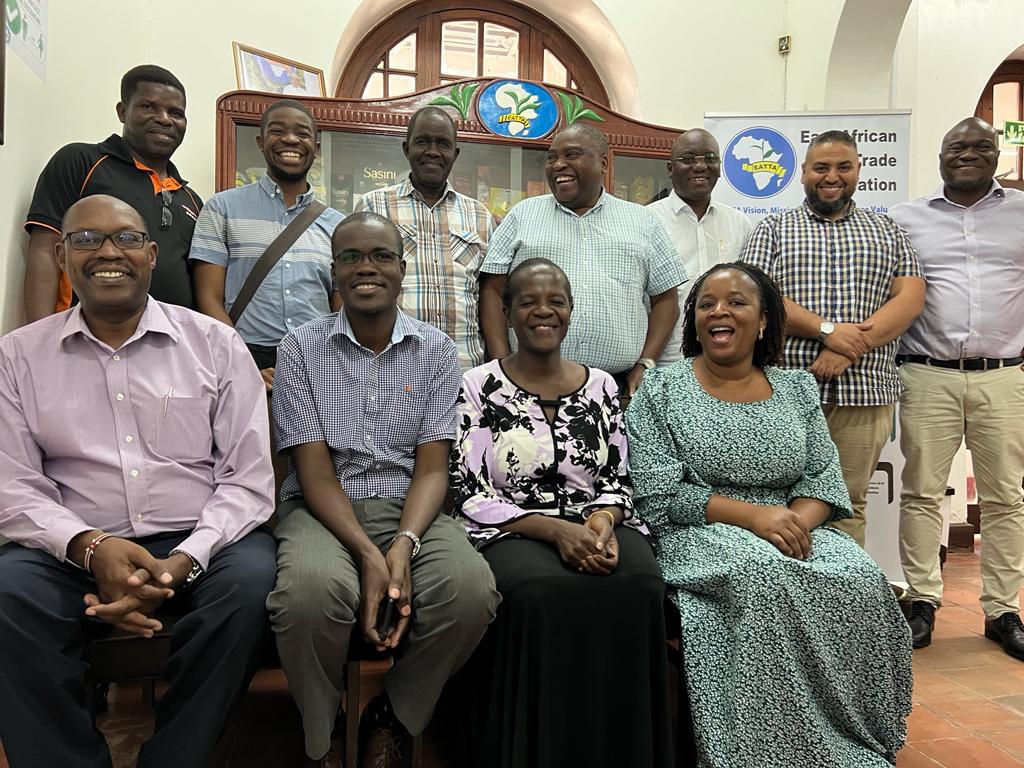
MALAWI TEA SECTOR CREATES A COMPETITIVE EDGE THROUGH PEER LEARNING
Solidaridad’s RECLAIM Sustainability! programme is collaborating with Malawi tea producers as they face new challenges and prepare to transform the country’s tea sector. Through technology and automation, Malawi hopes to inspire other southern African countries as it makes plans to implement a comprehensive tea sector overhaul.
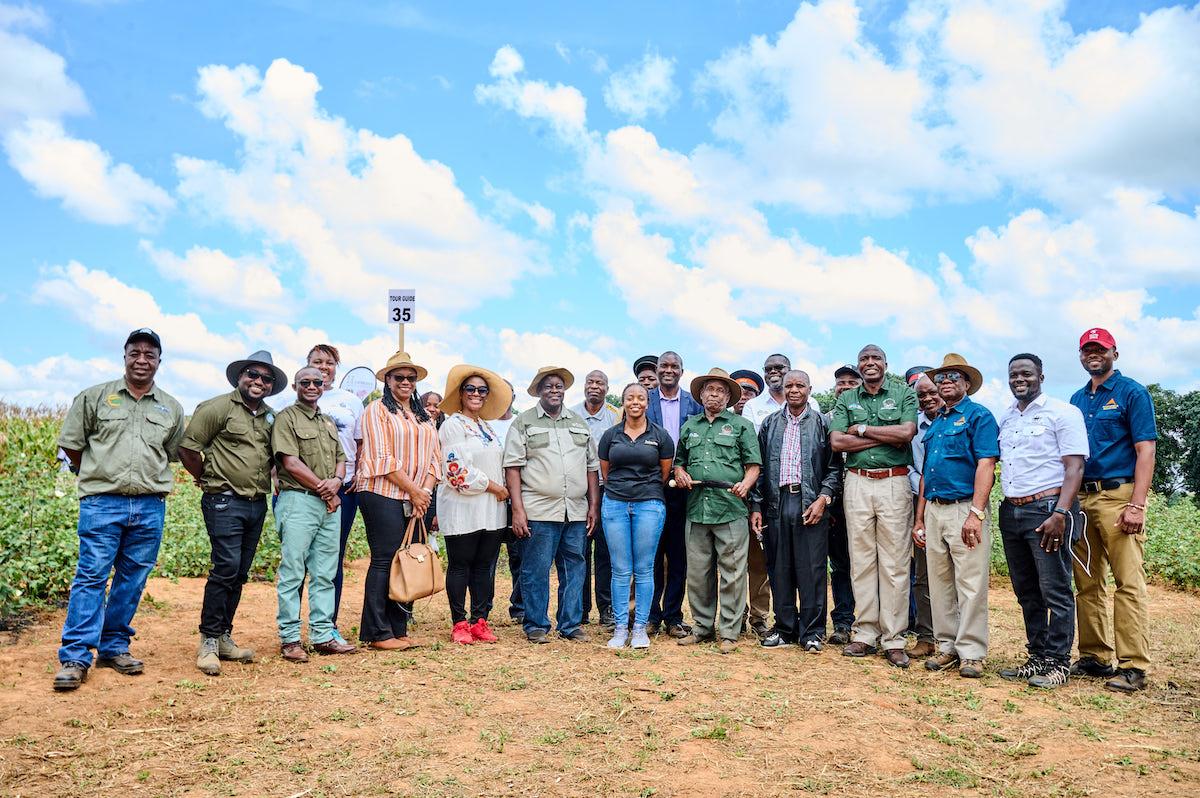
COLLABORATING FOR POLICY REFORM IN ZAMBIA’S COTTON SECTOR
Zambia’s cotton industry faces numerous challenges which hinder its growth and sustainability. In response, Solidaridad launched its RECLAIM Sustainability! programme within the country to pave the way for long-term success through a supportive regulatory framework.
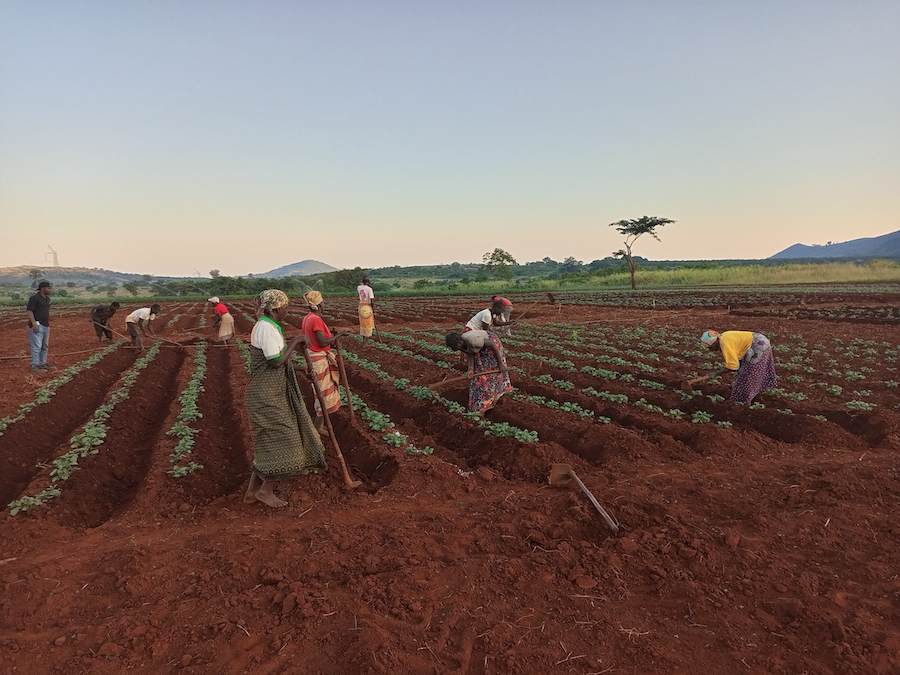
ZAMBEZI POTATO FARMERS IMPROVE YIELDS IN DEMO PROGRAMME
In partnership, Solidaridad and Wageningen University & Research implemented a potato demonstration in Mozambique’s Zambezi Valley. The programme, funded by Zambezi Valley Development Agency, promoted good agricultural practices and aimed to demonstrate achievable yields and resource efficiency in potato production.
Sustainability Solutions
The power of innovation
Creating change that lasts
Sustainability solutions took centre stage in 2023. In the face of global challenges, we continued to pioneer innovative approaches to foster sustainable development across the region. From empowering farmers with digital technologies to promoting gender equality in agribusiness, our initiatives strove to create lasting impact while preserving the planet for future generations.

Following the 2022 commodity-wide GESI Dialogues, a GESI Framework was developed in collaboration with the Ukama Ustawi project which is an initiative under the International Water Management Institute. The framework covers gender and social inclusion issues from Ethiopia, Kenya, Zambia and Zimbabwe and represents a holistic strategy to address challenges within the agribusiness sector. This framework places a strong emphasis on collaboration among policymakers, technology developers, financiers and civil society to foster inclusivity. The insights gained from GESI consultations and secondary analysis revealed critical considerations to effectively integrate gender and social dynamics into agribusiness strategies. One fundamental learning was the recognition that achieving transformative change required delving into deep-seated social norms, values and cultural aspects that perpetuate gender inequality and social hierarchies. The framework emphasized the need to go beyond policy implementation, urging a challenge to these fundamental aspects for more effective interventions.
Additionally, the framework highlighted a notable gap in attention to the exclusions experienced by marginalized youth in agribusiness. Recognizing and addressing the unique challenges faced by both male and female youth is deemed essential for developing comprehensive and inclusive strategies.
The role of women in agriculture came into focus, with an acknowledgment that their contributions were often concentrated in production and low-value markets, limiting their economic opportunities. The framework underscored the importance of diversifying and empowering women across various stages of the agribusiness value chain to unlock significant economic outcomes. The framework also advocated for holistic GESI interventions covering the entire agribusiness value chain, from production to marketing.
Start, Awareness, Support, and Action (SASA) training sessions were conducted for project and programme managers during the reporting period. Notably, RECLAIM Sustainability! project managers in Zambia and Mozambique participated in these sessions, designed to equip them with essential tools and knowledge for effective advocacy and policy development within the supported commodity sectors. The comprehensive training covered a range of pertinent topics, including understanding policy-making processes, advocacy strategies, lobbying techniques, and the nuanced impact of power dynamics. Specifically, the programme empowered staff to advocate for policy change grounded in research and evidence, while also exploring strategies to influence decision-makers through compelling communication. Moreover, the training aimed to strengthen organizational capacity for advocacy initiatives, reflecting a commitment to sustainable and impactful change.
By investing in SASA training, Solidaridad Southern Africa underscored its dedication to capacity building and advocacy for sustainable development. The sessions provided an invaluable opportunity for RECLAIM Sustainability! project managers to enhance their skill set and deepen their understanding of advocacy processes within the complex landscape of policy development. Through a tailored curriculum focusing on policy analysis and effective communication strategies, participants were equipped with the necessary tools to navigate and influence decision-making spheres. This initiative not only empowered individuals but also fostered a culture of collaboration and collective action, essential for driving meaningful change within the supported commodity sectors. Moving forward, the knowledge gained from these training sessions will serve as a catalyst for informed advocacy efforts, further advancing Solidaridad’s mission of promoting sustainable solutions and inclusive development.
In 2023, as part of the SADC Support to Industrialization and Productive Sectors project, Solidaridad Southern Africa spearheaded the establishment of a groundbreaking virtual design studio. Positioned within the Bulawayo Leather Cluster, this innovative platform is poised to revolutionize the landscape of shoe design for small and medium enterprises (SMEs) in Zimbabwe. By harnessing cutting-edge technology, the studio significantly reduced design time from three days to under an hour, presenting a transformative opportunity for the local shoe-making sector. Through seamless integration and user-friendly interfaces, this initiative enhanced efficiency and fostered competitiveness among SMEs, ultimately contributing to the sector’s sustainable growth and economic development.
Additionally, in 2023, Solidaridad Southern Africa introduced an open digital system designed to facilitate data portability among agricultural service providers. This pioneering approach bridged existing data silos, and promoted collaboration and innovation within the agricultural sector. By enabling secure sharing of agricultural data through authenticated API gateways, the system ensured data privacy and integrity, addressing concerns about unauthorized access and fostering stakeholder trust. By embracing digitalization and interoperability, Solidaridad Southern Africa championed sustainable solutions that inspired positive change and empowered stakeholders across various sectors to thrive in a rapidly evolving digital landscape.
Organization & Governance
Navigating Transitions
In 2023, our human resources focus in Southern Africa revolved around enhancing staff engagement, and the re-education on policies and procedures. These efforts were part of a broader strategy to foster a positive work environment and ensure that all employees are well-informed and recognized for their contributions.
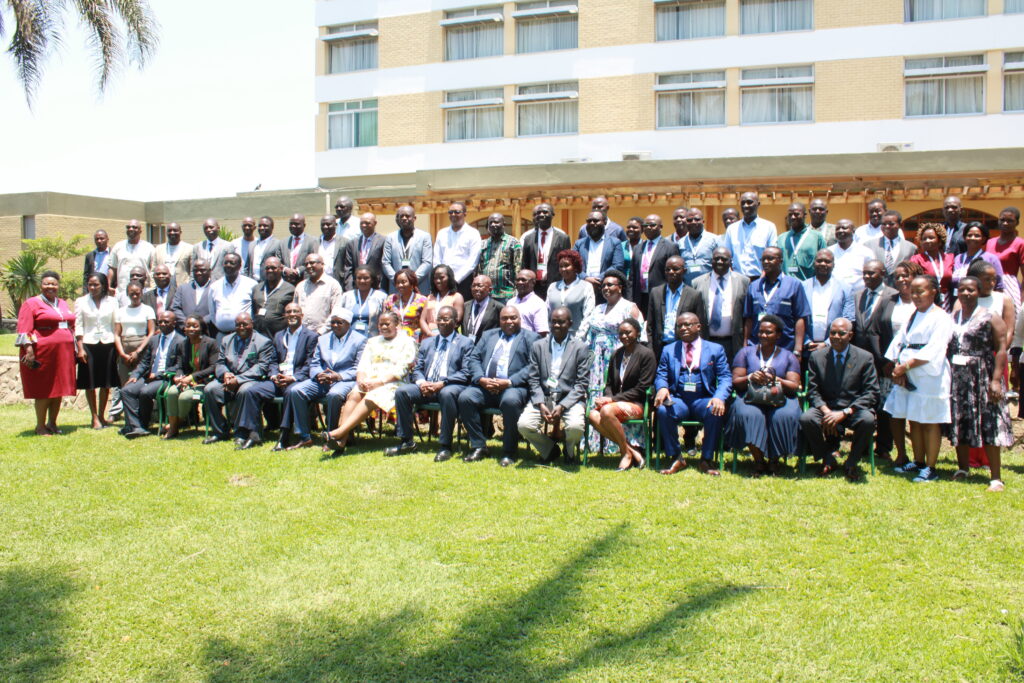
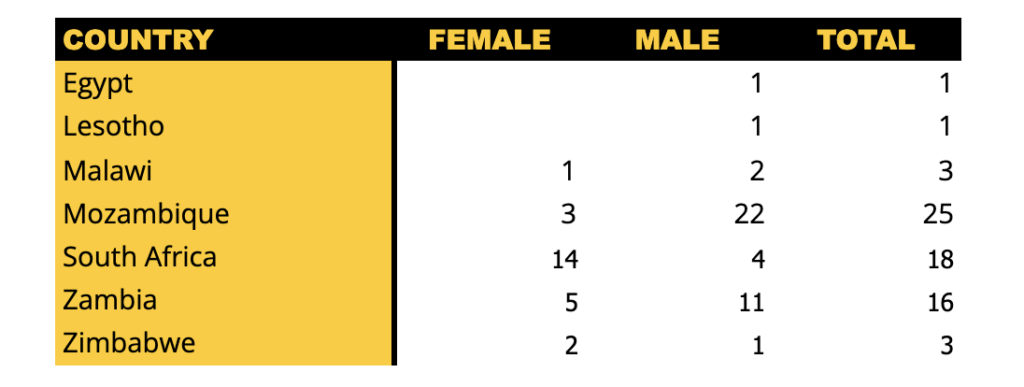
In 2023, we hired a female South Africa Country Manager to grow the South Africa office. This move was a deliberate effort towards increasing female leaders within REC. Appointing a female South Africa Country Manager who grew from within Solidaridad’s ranks is vital for fostering gender diversity, empowering women’s leadership in sustainable development, and setting a positive example for inclusive organizational growth.
One of the key initiatives implemented in 2023 was the development of the Peer Rewards & Recognition programme. It celebrated and acknowledged the efforts of employees who demonstrated exceptional performance or went above and beyond their duties. The programme included the introduction of tag rewards, which allowed employees to recognize their peers for specific achievements or contributions. This not only encouraged a culture of appreciation but also promoted teamwork and collaboration among staff members.
Another significant initiative was the implementation of learning circles, which were informative sessions designed to educate staff about the organization’s policies and procedures. These sessions were conducted regularly and covered a wide range of topics related to human resource policies. The learning circles not only helped employees understand the expectations and standards of the organization but also provided a platform for staff to ask questions and seek clarification on any issues they may have had.
In addition to the learning circles, Solidaridad in Southern Africa also introduced monthly organization-wide sessions that focused on various human resources policies. These sessions were aimed at ensuring that all employees were aware of the organization’s policies and understood their rights and responsibilities. By providing this information in a structured and accessible manner, we were able to promote transparency and accountability within the organization.
One of the key priorities for the region in 2023 was to ensure intentional inclusivity for non-English speaking staff. To achieve this, all human resources related communication was translated into Portuguese, the second most spoken language in the organization. This initiative was crucial to ensure that all employees, regardless of their language proficiency, had access to important information and were able to fully participate in the organization’s activities.
Overall, the focus on staff engagement, re-education on policies and procedures, and the introduction of the Peer Rewards & Recognition initiative were instrumental in enhancing the work environment. These initiatives not only helped improve communication and transparency within the organization but also fostered a culture of appreciation and inclusivity. By investing in our employees, we were able to create a more motivated, engaged and productive workforce in 2023.
In 2023, we participated in several speaking engagements, including conferences such as How Tech Solutions are Revolutionizing NGO Fundraising, the 7th Adaptation Futures Conference, World Cotton Day, Career Fair Workshop, the Women in Agribusiness Conference, the Roundtable on Sustainable Biomaterials (RSB) NGO Drive: East Africa, and COP28. Additionally, we submitted an application for the 2024 Food Planet Prize and are honored to be shortlisted among the top 48 contenders.
Guided by our strategic pillars of visibility, engagement, credibility, and brand consistency, our communication and marketing efforts have yielded significant achievements. Notably, the launch of the Hooves for Sustainability project stands out as a pivotal initiative aimed at fortifying the business ecosystem in Zambia. Furthermore, under the RECLAIM Sustainability! project, we collaborated with the Cotton Development Trust to host a Cotton Field Day, focusing on sustainable practices such as biochar to enhance cotton production. This event attracted key stakeholders in the cotton sector and gained attention from local media, national and local government, district chieftains, academia from the University of Zambia, private sector players in the livestock industry, and participating farmers.
In Zimbabwe, our support extended to leather entrepreneurs participating in the Southern African Development Community leather programme at the Bio Africa conference. This strategic initiative aimed at enhancing visibility and facilitating market linkages for smallholders’ access to private and wholesale markets. Through showcasing these entrepreneurs, the project garnered significant interest from the national government in Zimbabwe, South Africa and the EU Ambassador in Zimbabwe.
In Mozambique, our efforts to raise awareness about the potato project successfully swayed smallholder farmers to overcome their initial reservations about potato production. By highlighting the success stories of this programme, we not only bolstered our credibility but also established a model for achieving positive outcomes in our sector-based interventions.
Our online presence remained robust, leveraging our website as a platform to share compelling human-centric stories and showcased the strides made in our sector-based interventions. Across social media channels, we actively demonstrated the pulse of our organization through on-the-ground activities, resulting in a notable growth in followers with a 9.7 percent increase in followers on X (formerly known as Twitter).
The appointment of our new Managing Director brought about a pivotal shift in our internal communications approach. At the heart of this strategy lay a steadfast commitment to transparency and the cultivation of a culture characterized by collaboration, inclusivity and innovation across borders. With this renewed focus, the communications team collaborated closely with the Managing Director to establish a quarterly State of the REC Address, ensuring employees are well-informed about organizational developments and data-based targets while providing a platform for valuable feedback and input.
Furthermore, we championed the executive committee in launching the TAG Awards, a recognition programme designed to bolster staff engagement. This initiative has catalyzed excellence, fostering a sense of motivation, increasing staff participation, and ultimately enhancing productivity. Similarly, our internal marketing efforts have undergone a significant evolution. We have empowered various teams to effectively disseminate information and garner support from other departments through concise, easily digestible messages conveyed via emails, infographics, WhatsApp posts and videos. This concerted effort has not only elevated internal visibility, but also nurtured a culture of radical ownership, creativity, and innovation as employees actively seek more engaging ways to interact.
Baseline assessments for the project Pathways to Prosperity were successfully conducted in Zambia and Malawi, providing valuable insights into the targeted commodities and supply chains. In Mozambique, concerns about the initial sample size’s representativeness led to a proactive decision to re-collect the data, reflecting our commitment to research integrity. This recalibration process is ongoing, enhancing the baseline’s robustness. In Zambia, critical challenges in cotton and leather value chains were revealed, emphasizing the need for targeted interventions. Similarly, the Malawi baseline highlights the structured cotton industry and operational hurdles in the tea sector, strategically guiding the Pathways to Prosperity programme.
Solidaridad Southern Africa also successfully concluded the baseline assessment for the Acting Now project in Mozambique. Focused on enhancing agricultural productivity and market connections, the study revealed challenges and opportunities for smallholder farmers. The draft report, nearing finalization, underscores key intervention areas: improving input access, implementing climate-smart practices, enhancing market connections, and promoting gender equality. The findings advocate for improved digital inclusion and urge Mozambican decision-makers to prioritize inclusive and resilient agriculture systems.
The Hooves for Sustainability project’s baseline study in Southern Zambia, initiated in early 2023, is set to conclude by March 2024. Assessing smallholder livestock farmers, infrastructure and policies, this meticulous study will serve as a foundational reference for monitoring project impact and progress. Acknowledging the dedication of stakeholders, Solidaridad Southern Africa anticipates leveraging these insights for the sustainable enhancement of livestock management practices in the region.
Finance

Income for the year was 5.5 million euros which is nearly one million euro more than income received for 2022, and 1.8 million euros higher than the original budgeted income. The income demonstrates a substantial increase in own funding, predominantly through the securing of 1.9 million euro grant funding from the Presidential Employment Stimulus funding through the Industrial Development Corporation of South Africa, 300,000 euros from the Bill & Melinda Gates Foundation, 104,000 euros from the SADC Support to Industrialization and Productive Sectors, 192,000 euros from the International Fund for Agricultural Development through the International Livestock Research Institute, and 205,000 euros of funding from a substantive three-year grant from The Leona M. and Harry B. Helmsley Charitable Trust for a sustainable livestock project in Zambia. Funding from Solidaridad sourced Dutch Ministry funding amounted to 2.9 million euros for the 2023 year.

Expenditure amounted to 5.28 million euros of which 1.3 million Euros related to activity costs, almost 300,000 euros for overhead costs, 1.7 million for partner costs, and 1.9 million euros for staff costs.
The expenditure for 2023 was almost 853,000 euros more than the previous year due to an increase in project activity costs and partner costs from new projects secured. Staff costs and overhead costs were lower than the previous year due to exchange rate influences as well as due to certain senior management positions not being filled for the full year.
An overall positive result of 50,000 euros is projected pending the final audited accounts which reflects a significant increase from the budgeted deficit as well as an increase from the break-even position of the previous year (2022).

